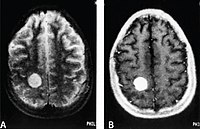
Photo from wikipedia
Radiation therapy (RT) is one of the common and widely used treatment method for thyroid tumors. Considering that the thyroid is located close to the heart, the radiation generated during… Click to show full abstract
Radiation therapy (RT) is one of the common and widely used treatment method for thyroid tumors. Considering that the thyroid is located close to the heart, the radiation generated during the treatment of thyroid tumors may have an adverse greater impact on the heart. This study is to explore the influencing factors, especially additional effects of RT, on cardiac-specific death among patients with malignant thyroid tumors. Collecting information from the National Cancer Institute’s Surveillance, Epidemiology, and End Results (SEER) database using SEER*Stat. Patients with malignant thyroid tumors were searched, whether receiving RT or not. Ultimately, 201, 346 eligible patients were included. Propensity Score Matching (PSM) was used to minimize bias of baseline characteristics by adjusting for confounding factors. COX (proportional hazards) and fine-gray (competing risk) model regression analysis were used to explore the effects of various influencing factors on cardiac-specific death. The present analysis showed that, compared with non-RT, RT based upon radioactive implants and beam radiation were associated with lower risk of cardiac-specific death in patients with thyroid malignancy, beam radiation therapy may had a similar effect. Besides, the remaining RT methods did not significantly increase the risk of cardiac-specific death. In addition, Asian or Pacific Islander ethnicity, female sex, marital status, combined summary stage (localized, regional, and distant), high-income, and later year of diagnosis were associated with lower risk of cardiac-specific death. While older age of diagnosis, African ethnicity, non-Hispanic ancestry, and derived AJCC stage (IV) were risk factors for cardiac-specific death. These results help to identify the factors influencing cardiac-specific death among patients with thyroid malignancies. Furthermore, it may helps to improve the clinical application of RT without too much concern about adverse cardiac effects.
Journal Title: Frontiers in Cardiovascular Medicine
Year Published: 2022
Link to full text (if available)
Share on Social Media: Sign Up to like & get
recommendations!